Desert Island Books rides the range…
I would like to have opened this segment with a review of Matthew Harffy’s latest book in The Bernicia Chronicles – Killer of Kings. But it sits waiting on my Kindle for me to finish my current reading. I have no doubt it will maintain Matthew’s reputation as a compelling writer of Seventh Century Britain. Matthew’s hero, Beobrand, has quite taken over from Cornwell’s Uhtred of Bebbanburg for me. Beobrand has such dimension and depth and wondering what influences Matthew may have had in the creation of such a well-rounded character, it’s intriguing to see where Matthew’s interests lie as he is marooned far from home on a Desert Island. I heard that westerns may make an appearance. Westerns? Matthew?
I’ve always loved reading. Not surprising really when you consider what I now do for a living. But I used to read a lot more than I do now. I used to commute on public transport every day which gave me ample time to read at least a book each week, often more than that. But in recent years most of the time that I could spend reading I spend writing, or reading research, and I very rarely read for pleasure more than a few pages before I fall asleep at night. So when Prue asked me to list my ten desert island books, I relished the idea of being stuck in a remote location somewhere with enough time to actually sit down with my favourite books and just read. I have selected ten books that have all had a great impact on me. Some from my childhood, others from when I was a young adult, and a couple from very recently.
I hope you enjoy my choices. I recommend them all.
Lonesome Dove by Larry McMurtry
This Pulitzer Prize winning novel is my all-time favourite book. It is an epic saga with amazing characters, a richly-detailed historical backdrop and many truly memorable scenes. It is set in the old West of America and has everything you could ask for in a great Western. One of the main parts of the story describes a great cattle drive in which the endearing cast faces terrible adversity, from rustlers and river crossings to outlaws and Indians. Some people might be put off by the setting, believing it to be ‘just’ a Western, but it is so much more than a pulp novel. It is a window into a different time. McMurtry tells the stories of real men and women of the frontier with subtlety and a keen attention to historical detail, but more than that, he lures the reader into the world of Captains Augustus McCrae and Woodrow Call and then takes them on a journey that is nothing short of fabulous. Historical fiction writing at its very best. Oh, and if you think G.R.R. Martin kills off characters unexpectedly, McMurtry doesn’t pull any punches and there are some truly jaw-dropping moments!
If you’ve read any of my novels, you may well recognise a few scenes that I have added as a nod to Lonesome Dove. McMurtry’s lack of sentimentality with his characters is also something I have taken to heart. This book inspired in me a love for the history and geography of the North American West and ever since reading this amazing book I have dreamt about riding the Goodnight-Loving trail from Texas to Montana!
The Lord of the Rings by J.R.R. Tolkien
What is not to love about Tolkien’s classic fantasy trilogy? I have been a huge fan since I was a child playing Dungeons & Dragons with my friends and dreaming I was Aragorn, son of Arathorn. The richness of the world Tolkien created is incredible in its depth and breadth, and the constant echo of Old English and Norse sagas had a massive impact on me and my writing. It is surely not by chance that I found myself writing about Anglo-Saxon Britain, where tales such as those told by Tolkien would reverberate from the soot-stained beams of mead halls. I adore the stories and the characters, but I have to admit I have only managed to complete the trilogy once, despite having read the first book, The Fellowship of the Ring, several times. So I would relish the time on the island to be able to read the whole thing in a single edition from cover to cover. I could even try to learn Elvish and Dwarvish from the Appendices!
The Mythago Cycle Volume 1: A Ryhope Wood Omnibus by Robert Holdstock
This omnibus edition is made up of Mythago Wood and Lavondyss, the first two books of the Ryhope Wood series (a series that I have only just discovered has seven books in total, five of which I have not read, so I have some catching up to do!). Winner of the World Fantasy Award for Best Novel in 1985, Mythago Wood is one of the most haunting, evocative works of fantasy I have ever read. It is set in late 1940s England, where a man discovers that ancient woodland that grows beside his family home holds incredible secrets and is a nexus for strange, mythical powers and beings. It is hard to describe without giving too much of the story away, but it is one of the few books I have read more than once and would be happy to read again many more times. I read the sequel, Lavondyss, when it was released, but did not like it very much at the time, which is why I stopped with the series. However, as it comes in the same volume, I’ll give it another try.
Watchmen by Alan Moore and Dave Gibbons
This is an interesting one and the only graphic novel in my list. It is written by Alan Moore who is, without a doubt, a genius. He is madly eccentric, and the co-creator, along with Dave Gibbons, Watchmen, the biggest selling graphic novel of all time.
I bought this book back in the late eighties before the term graphic novel even existed I think. I was only in my late teens and the artwork, coupled with the adult themes tackled in the story, under the guise of an extended comic book about masked vigilantes and superheroes really sparked my imagination. I was challenged by the format of the book too. At the end of each chapter there is a section of prose, veering away from the traditional drawing-based comic. Each of these sections is taken from some fictional book or magazine article from within the story itself and each one adds an extra layer of detail and depth to the story.
Don’t dismiss Watchmen, or indeed Alan Moore. If you only ever read one graphic novel in your life, make it this one.
IT by Stephen King
I read this book probably around the same time that I read Watchmen, maybe a couple of years later. Stephen King creates characters better than almost any other writer and whilst he has often been looked down upon as a genre writer, the quality of his prose is astounding. Add to that a fearless ability to shine a light into the darkest recesses of society, and not forgetting that he can tell a great story too, Stephen King has always been one of my favourite authors.
In IT he tells the tale of a group of childhood friends who are brought back together in adulthood to face an evil they believed they had destroyed when they were children. The story is told through the two storylines: the adults, and their childhood selves. It is extremely effective, and, I think, Stephen King’s finest writing.
It also terrified me and is one of the few books that I have remained frightened of even when not reading it! I remember walking through the deserted hot summer heat in Madrid and running past a cavernous storm drain for fear of what might be lurking within it!
The Road to Reckoning by Robert Lautner
This is one of the newest books on the list. I actually got the book by chance when I bought all the books by Mark Keating in a charity auction. When I received the box of signed books, there was one by Robert Lautner inside, called The Road to Reckoning. Intriguingly it featured a Western-style revolver on the cover. It turns out that Robert Lautner is Mark Keating’s literary fiction pseudonym.
Well, as I’ve said, I love Westerns, so I couldn’t resist opening this book before the others in the box. From the first page to the last I was entranced. Lautner’s writing is authentic and the story and characters engaging. The plot is fairly straightforward, but all the while I was reading this tale of a young boy’s trials and tribulations in the nineteenth century, I felt I was reading a classic of literature. Brilliant stuff!
The Winter King by Bernard Cornwell
The story of Arthur retold in gritty, action-packed realism. All the main characters are there. Merlin is magical, but it is never clear whether he real wields mystical powers or if he simply knows the ways of nature and the minds of men. Native Britons defend their kingdom from the advance of the Sais (Saxons). Battles, betrayals, love and death. Dark Ages Britain has never been so much fun to read.
This series of books was probably the single strongest influence on my writing and almost certainly what kindled my love of the so-called Dark Ages. They are amazing works of fiction and Cornwell’s best novels to date. Interestingly enough, he often says as much when asked in interviews for which of his books he is most fond of.
Shieldwall by Justin Hill
This Sunday Times Book of the Year is the first in a series leading up to the Battle of Hastings. Justin Hill’s clever use of language that is directly derived from Old English and the meter of his prose that could so easily be imagined echoing in a great mead hall as part of a scop’s epic saga, lends this page-turner a real sense of authenticity.
Strong characters, bloody battles and beautiful prose. What’s not to like?
The most recent book Hill has released is Viking Fire, which is also great!
Master and Commander by Patrick O’Brian
Patrick O’Brian is the absolute master of historical fiction. The best praise for this series is that it feels as if it could have been written in the early nineteenth century – the time the books are set. I only discovered O’Brian’s writing quite recently and I was amazed at the amount of research he must have done to achieve this level of authenticity. The attention to detail is incredible and the main characters, Jack Aubrey and Stephen Maturin, are so well-formed that you feel you know them like members of your own family by the end of the books. The writing can be hard going at times, especially to start with, but persevere and you’ll be rewarded with twenty of the best historical novels ever written.
Legend by David Gemmell
And last in my list is certainly not the least. Legend is David Gemmell’s first novel and tells the story of the siege of Dros Delnoch, a great fortress, and introduces his wonderful character, Druss the Legend. Anyone who likes action-packed adventure, battles and great characters will love this book. It is escapism at its best.
I read this for the first time when I was a teenager and recently I got my hands on an old audio book version, so I “read” it again.
What I discovered is that David Gemmell’s debut is still as powerful today to my forty-six-year-old self as it was to fifteen-year-old me. It is an amazing tale of heroism, sacrifice, duty and love. It made me laugh and cry and swept me along towards the epic final battle like a literary tsunami.
Gemmell’s writing is so powerful and seemingly effortless. He manages to give great depth to all of the characters that flit across the pages. The protagonists, from the implacable Druss, Master of the Axe, to Regnak, the unlikely hero, to the ascetic members of the Thirty, are drawn with great compassion and feeling. Even small, walk-on parts are given a backstory that explains who they are and what makes them tick, often to only see them cut down in defence of what they believe in, a page later. Gemmell is able to make you feel attached to any character, whether hero or villain, in only a couple of lines.
The most surprising thing for me was how obviously the events described in this novel have influenced my own writing. I kept listening to pieces of the story and thinking, “Woah! That is just like that bit in my books…!” I have never knowingly copied any part of Gemmell’s writing (or anyone else’s for that matter!), but the influences are very clear if you know what you are looking for.
I don’t think anyone has ever done fast-paced epic fantasy better than Gemmell, and Legend is arguably his best book.
===
So that’s it, my ten desert island books. They should keep me going for a while. As to where I would like to read them, well I’m not sure I would like to be on a desert island, so how about one of the Farne Islands? St Aidan and St Cuthbert both sought solitude on the remote rocky islands south of Lindisfarne. I’m not sure how well I would cope with being alone there in the harsh Northumbrian winter, or how long I would like to be completely alone, as I’m quite a gregarious fellow, but a few days to myself with clement weather and, of course, my desert island books for company, wouldn’t be bad at all!
Your island choice is perfection, Matthew. Forget winter there – just assume that there will be those summer days where the sea is glassy and the birds swoop and cry and that a boat is scheduled to collect you after a few days/months so that you can happily rejoin society again!
Thank you for your list – I’m finding that Tolkein is remaining at the top of the leader board for a common choice amongst all my Deserters. Which means I am going to have to come back to you all one day and have a round table discussion about the Master and Commander of Fantasy…
You can find out more about Matthew and about his books via the links below:
Website: www.matthewharffy.com
Twitter: @MatthewHarffy
Facebook: MatthewHarffyAuthor


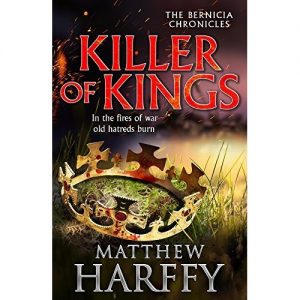
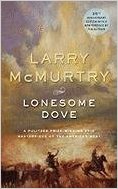

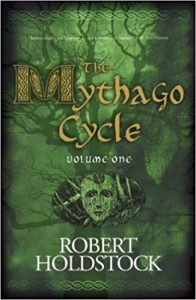
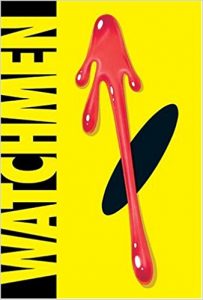

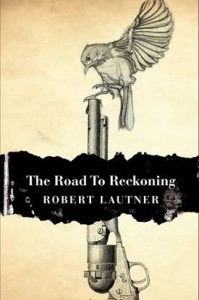

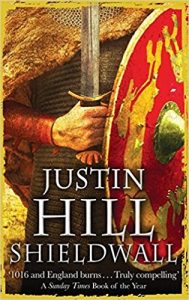
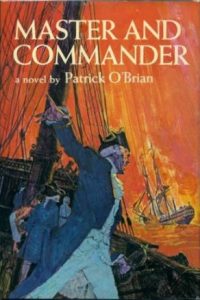

Interesting hoice of books
Choice even … sorrry the C on the laptop sticks and if I submit before checking 😉